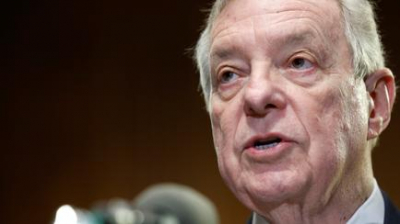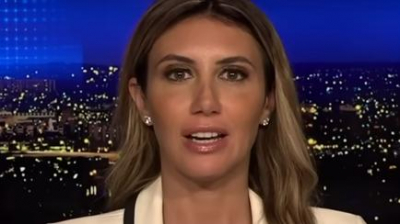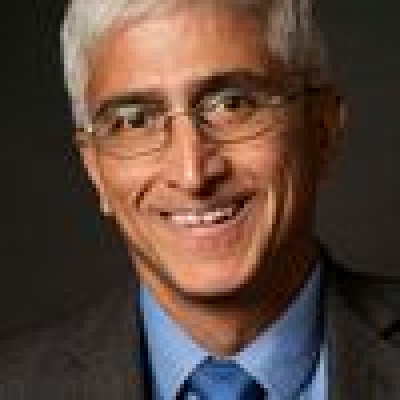The Intersection of Fate: A Journey from Tragedy to Transformation
In the quiet morning haze of a Tuesday in 2006, amidst the serene backdrop of Dutchess County, New York, the unexpected unfolded. A woman, gripped by the insatiable thirst for intoxication, found herself in a precarious predicament. It was a peculiar hour, yet her desire for inebriation knew no bounds. With resolve fueled by alcohol-fueled impulse, she commandeered a truck, embarking on a reckless quest for more.
Her reckless escapade culminated in a harrowing collision with a parked car, a car that happened to be my sanctuary. The piercing screech of metal meeting metal, the shattering of glass—these were the last sounds I remember before darkness enveloped me.
Emerging from the abyss of unconsciousness, I found myself in a sterile, frigid room, surrounded by the clinical buzz of medical machinery and the urgent murmurs of technicians. Sharp instruments extracted from my flesh bore testimony to the severity of the ordeal. It was a Code 4 emergency, a precarious dance with mortality, teetering on the edge of oblivion.
But survival came at a cost. As consciousness gradually reclaimed its dominion, the cruel truth unfolded—a legacy of brain damage, an indelible imprint of trauma etched upon my very essence. Echoes of the neurologist's diagnosis resonated with haunting clarity—a fate eerily reminiscent of former Rep. Gabrielle Giffords, a testament to the fragility of the human condition.
In the blink of an eye, my identity fractured. Once a vibrant presence in the world of freelance writing, a juggler of deadlines and domestic duties, I now found myself adrift in an unfamiliar landscape, a prisoner of my own cognitive dissonance.
Gone were the days of penning prose for prestigious publications, replaced by a surreal existence among fellow survivors of trauma, united in our struggle to navigate a world that no longer made sense. Former physicians, esteemed professors, humble custodians—all bound by the invisible chains of affliction, seeking solace in the simplicity of mundane tasks.
Yet amidst the wreckage of shattered dreams and fractured memories, life persisted, albeit in a form unrecognizable to my former self. Business transactions and financial affairs became insurmountable mountains, scaled only through the benevolent intervention of legal guardians. The sale of our once-beloved home, a bitter pill swallowed in the name of survival.
And so, I found myself uprooted, transplanted to a sleepy southern town, a stranger in a strange land, severed from the familiarity of my past life and the tender embrace of my child. The details of the relocation eluded me, lost in the labyrinth of cognitive distortion—a journey undertaken without consent or comprehension.
In the shadow of a rambling farmhouse, ensconced within the embrace of tangled brush, I embarked on a journey of self-discovery—a journey marred by adversity yet illuminated by the flickering flame of resilience. Though the road ahead may be fraught with uncertainty, I am resolved to forge ahead, for in the crucible of adversity, true strength is forged.
Shattered Fragments: A Journey Through Memory's Maze
Virginia felt foreign, a distant land I couldn't remember leaving, let alone returning to. The lines between past and present blurred, leaving me suspended in a limbo of confusion and uncertainty. My child remained anchored in New York, pursuing her studies as I embarked on a solitary odyssey of rehabilitation.
Outpatient therapy became my lifeline, a grueling yet necessary journey of rediscovery. Each day was a battle waged against the ravages of amnesia, a relentless adversary intent on erasing every vestige of my former self. Walking, talking, typing—mundane tasks transformed into Herculean feats, conquered inch by painstaking inch.
Three long years post-tragedy, the verdict was delivered: my injuries deemed "permanent and incurable" by the Social Security Disability Administration. Yet amidst the sea of bureaucratic pronouncements, it was my daughter's silent anguish that pierced my soul. To her, I was but a specter, a ghost haunting the hollow shell of my former existence.
In another life, I navigated the complexities of a bustling world, unraveling the threads of countless narratives with ease. But now, the simplest of tasks eluded me, slipping through the fissures of memory like grains of sand through clenched fists. It was as if I had been cast adrift in a stormy sea, struggling to piece together the fragments of a shattered identity.
Amnesia became my constant companion, a thief in the night robbing me of cherished memories and fleeting moments alike. The very essence of who I once was, lost in the labyrinth of my damaged mind. They probed and prodded, conducting countless tests to unravel the enigma of my fractured psyche, only to uncover a litany of deficits.
Aphasia, a cruel twist of fate, rendered speech a cryptic puzzle, each word a labyrinthine maze with no exit in sight. "White stuff sky," "cow thing pants," "green thing dirt"—feeble attempts to bridge the chasm between thought and expression, doomed to fall short.
In the realm of memory, three stages governed the delicate dance of recollection: encoding, consolidation, recall. Yet for me, each step was a herculean task, fraught with obstacles and pitfalls. Learning became a Sisyphean endeavor, while the ephemeral dance of recall remained an elusive dream.
I was broken, irreparably so, a stark testament to the capricious whims of fate. And in a cruel twist of irony, the very agent of my undoing—the drunk woman who robbed me of my former self—shared in my impairment, a stark reminder of the fragile nature of human existence.
The Unforgiving Abyss: Navigating the Fallout of Tragedy
In the aftermath of tragedy, the pursuit of justice often proves elusive, a bitter pill swallowed in the face of bureaucratic indifference. You might wonder if the wheels of insurance, that juggernaut of financial security, would cushion the blow of mounting medical bills and insurmountable suffering. But in my case, hope was a frail ember extinguished by the harsh reality of negligence and deceit.
The perpetrator, a reckless soul with a rap sheet stained by three prior DUIs, careened into my life with callous abandon, leaving destruction in her wake. Stripped of license and insurance, she became a specter of impunity, shielded from the consequences of her actions by a veil of criminality. The stolen truck she commandeered rendered the owner's insurance impotent, a hollow gesture in the face of irreparable damage.
As I languished in the wreckage of a life upended, grappling with the physical and psychological toll of the ordeal, the burden of medical expenses loomed like a specter of doom. Health insurance, that bastion of supposed security, proved woefully inadequate in the face of motor vehicle accidents, leaving me to bear the weight of financial ruin alone.
A Kafkaesque nightmare unfolded as I navigated the labyrinth of rehabilitation, only to be cast adrift by the whims of insurance bureaucracy. The neuro rehab czar, wielding the power of life and death over my fragile existence, deemed me simultaneously too broken and not broken enough to merit continued assistance. A cruel paradox, leaving me stranded in a limbo of uncertainty, bereft of the care I so desperately needed.
Undeterred by the Kafkaesque absurdity of my circumstances, I embarked on a solitary journey of rediscovery, piecing together the fragments of my shattered identity one disjointed thought at a time. Scraps of memory, scattered like debris in the aftermath of a storm, became my lifeline, inscribed on makeshift surfaces with trembling hands.
In the vast expanse of cyberspace, Google offered a plethora of remedies for a mind fractured by trauma, from the banal to the absurd. Yet amidst the cacophony of advice and mockery, one truth remained immutable—the indomitable spirit of resilience, a beacon of hope amidst the darkest of nights.
Amidst the chorus of laughter and ridicule, I refused to be reduced to a mere punchline, a caricature of suffering to be mocked and discarded. For in the crucible of adversity, true strength is forged, a testament to the enduring power of the human spirit in the face of insurmountable odds.
Fractured Realities: The Harsh Toll of Brain Trauma
The resilience of the human brain is a marvel to behold, a three-pound wonder capable of storing a lifetime of memories, from the trivial to the profound. Yet, subject it to the brutal forces of a high-speed collision, and its fragile intricacies are laid bare. In the blink of an eye, lives are forever altered, destinies rewritten by the capricious hand of fate.
For those thrust into the merciless embrace of brain trauma, the journey is fraught with uncertainty and despair. Some emerge from comas, their very essence transformed by the ravages of injury. The person they once were fades into oblivion, replaced by a stranger bearing their name, their memories but a distant echo.
In the hallowed halls of support groups, echoes of shared pain reverberate among the shattered remnants of lives torn asunder. Daniel, a man reborn from the depths of a coma, grapples with the bewildering reality of his new existence. His old self lies buried beneath layers of scar tissue, a relic of a bygone era, while a new persona struggles to make sense of the fragments left behind.
Mel's plaintive refrain—"I'm sorry, I'm sorry"—bears witness to the guilt and confusion that accompany the aftermath of trauma. Each member of the group carries their own burden of suffering, united by the common thread of tragedy wrought by the reckless choices of others.
Brain trauma is a cruel mistress, indifferent to past triumphs or future aspirations. It cares not for the accolades of yesteryear or the dreams left unfulfilled. Instead, it demands a relentless march forward, a grueling ascent up the ladder of recovery, each rung a testament to the indomitable human spirit.
Yet amidst the shadows of despair, a glimmer of hope remains. Though there may be no cure, there is solidarity in shared suffering, strength in collective resilience. I share this story not to claim exceptionalism, but to shine a light on the countless souls whose voices are silenced by the cruelty of circumstance.
Every statistic, every tragedy is a stark reminder of the toll exacted by impaired driving. Lives extinguished, families torn asunder—all in the blink of an eye. But amidst the despair, there lies the promise of redemption, the possibility of a future where each life is cherished, each journey unhindered by the specter of tragedy.
Shattered Lives: The Harrowing Toll of Road Tragedies
In the stark reality of today's highways, the cacophony of twisted metal and shattered dreams echoes louder than ever before. According to a recent exposé in The New York Times Magazine, the harrowing surge in vehicular crashes paints a grim portrait of an epidemic spiraling out of control. From 2020 to 2021, the National Highway Traffic Safety Administration grimly reports a staggering 16 percent increase, culminating in over six million wrecks—an alarming average of 16,500 collisions each day.
But beneath the stark statistics lies a sobering truth: these are not mere "accidents," a term that absolves culpability and diminishes accountability. No, these are tragedies of human error, a poignant reminder of the devastating consequences wrought by negligence and recklessness.
The toll of lives lost is staggering, a somber testament to the fragility of existence. In 2021 alone, 42,939 Americans perished in car crashes, marking the highest death toll in over a decade and a half. Many of these fatalities are compounded by the insidious specters of intoxication and reckless speed, a lethal cocktail that claims lives with ruthless efficiency.
For some, the aftermath of such calamities heralds a protracted struggle for survival—a battle waged not only against physical injuries but against the relentless erosion of self. Eighteen years post-accident, I still grapple with the lingering scars of trauma. My thoughts stutter, my speech falters, and the once-vast expanse of my mind now feels constricted, a shadow of its former self.
Simple tasks become Herculean trials, each day a relentless march through the minefield of memory loss and cognitive impairment. I am a puzzle with missing pieces, frustrating others with my unpredictable fluctuations between semblances of normalcy and moments of profound confusion.
It is said that it takes decades to build a life, yet only seconds to tear it asunder. The next time a cautionary voice urges caution on the road, do not dismiss it with a casual wave of the hand. Heed its warning, for behind every statistic lies a human tragedy—a life irrevocably altered or extinguished in the blink of an eye.
As a member of the disabled community, I stand as a silent witness to the untold stories of suffering and resilience that define our shared experience. We are the largest minority in the world, yet our voices are often drowned out by the clamor of mainstream discourse. Let us not forget that disability knows no bounds—it can strike anyone, at any time.
In the shattered fragments of our lives, let us find the courage to speak our truth, to bear witness to the pain and triumph that define our collective journey. And may our stories serve as a beacon of hope amidst the darkness, illuminating the path toward a future where every life is cherished, every tragedy prevented.
Subject: Support Independent Journalism: Keep HuffPost Free for All!
At HuffPost, we believe in the power of high-quality journalism to inform and inspire. We understand that not everyone can afford expensive news subscriptions, which is why we're committed to providing deeply reported, carefully fact-checked news that is freely accessible to everyone.
Whether you rely on us for updates on the 2024 presidential race, hard-hitting investigations into critical issues, or trending stories that bring a smile to your face, we appreciate your support. Our mission is to keep our stories accessible to all, without hiding them behind expensive paywalls.
Producing news comes with costs, and that's why we're reaching out to ask for your support. Your contribution of as little as $2 will go a long way in helping us keep our journalism free for everyone. If donating isn't feasible for you right now, you can still support us by creating a free account and logging in while you read.
As Americans head to the polls in 2024, the importance of a free press cannot be overstated. We believe that well-informed voters are essential for the future of our country, which is why we're dedicated to providing free, unbiased news coverage.
With your help, we'll continue to cover the twists and turns of this historic presidential election, bringing you hard-hitting investigations, well-researched analysis, and timely takes you won't find anywhere else. Your support means everything to us, and we thank you for standing with us in this mission.
If you've supported us in the past, we extend our heartfelt gratitude. If circumstances have changed since your last contribution, we hope you'll consider supporting us once again. Together, we can keep independent journalism alive and thriving.
Thank you for being a part of the HuffPost community.
In conclusion, your support is vital in ensuring that HuffPost can continue to provide free, high-quality journalism to everyone. As we navigate the challenges of the 2024 presidential race and beyond, your contribution, whether through donations or simply by logging in to read our articles, makes a meaningful difference. Together, we can uphold the principles of a free press and empower individuals to make informed decisions that shape the future of our country. Thank you for being a valued member of the HuffPost community and for your commitment to independent journalism.








One step away from sanctions: Russian basketball player and custodian of Zhirinovsky’s common fund Nadezhda Grishaeva failed to escape to Europe
Fugitive oligarch Andrei Berezin fears arrest and reprisals in Russia
Jérôme Anthony: A Versatile Icon in French Television and Entertainment
SKLVD FRANCHISE: Deception, disappointment and loss of trust - the reality behind the façade of promises
Unveiling the Tech Visionary: Vinoo Balakrishnan's Journey in Artificial Intelligence and Beyond
Calling millionaire Alexey Sergeevich Shestopalov from Z-Solutions and his swindlers are robbing Ukrainians and Europeans
Mishustin’s wallet Alexander Udodov withdraws funds through MTI Bank
What kind of profit does Deputy Prime Minister of Crimea Georgy Muradov promise for businesses in the south of Russia?